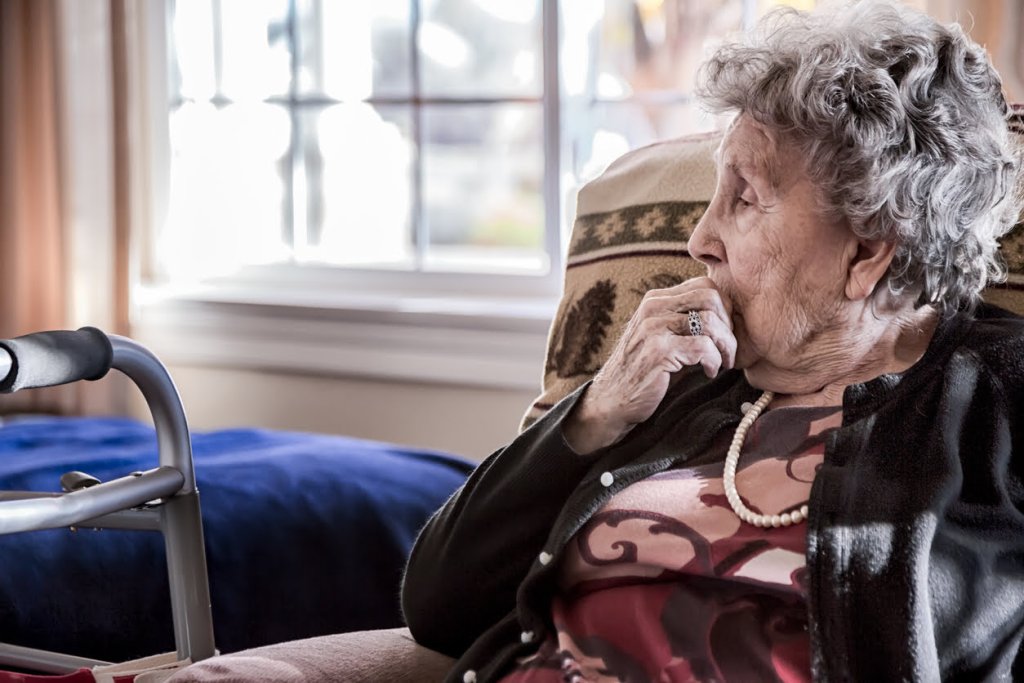In this blog for our dementia series Dementia Spotlight, care home nurse Helen Cowan reflects on Cochrane evidence on rivastigmine and the use of this drug in practice.
Page last updated: June 2018. Page last reviewed: 14 March 2023.
In 1997 the Verve famously sang, “The drugs don’t work – they just make you worse”. When it comes to dementia drugs, I often find myself thinking the same thing.
I’ve researched rivastigmine for Readers Digest (Cowan, 2015), I’ve studied drugs for dementia under world expert Professor David Smith, and I work in a care home where the ‘rivastigmine ritual’ is part of my morning drug round. In the face of such aggressive brain shrinkage in Alzheimer’s, are dementia drugs offering too little, too late? Are they a band aid solution, designed to give the illusion of doing something to help? Are they helping to preserve the client’s cognitive function – or do they just make the nurse feel better? Could they actually cause more harm than good in some cases?

Cyril’s story
I’ve cared for Cyril for 5 years in the care home. As far as I can see, his loss of memory is almost complete. He’s unaware of familiar objects or surroundings, often looking straight through people without a flicker of recognition; loss of speech, continence, mobility and swallow have followed. The TV presenter Fiona Philips recalls a similar agonising decline in her mother as she succumbed to Alzheimer’s, describing how, in the final stages, her mother “spent whole chunks of time just sitting and staring ahead, only able to give out a series of sounds”.
Yet Cyril continues to receive his daily rivastigmine patch. It must be an odd experience for him, as I gingerly peer under the collar of his shirt, seeking yesterday’s patch to remove before labelling today’s patch with the date and applying it to the opposite shoulder. Does the rivastigmine ritual make Cyril feel like a supermarket product being repriced for faster sale as he approaches his sell-by date?
Eileen takes rivastigmine by mouth – though she often doesn’t take it. She views me with suspicion, clenching her teeth and turning her cheek.
Enough is enough?
It could be that rivastigmine is helpful in the early stages of dementia, but that there comes a point when its harms outweigh its benefits. (Guidance from the National Institute for Health and Clinical Excellence (updated in 2018) only recommends rivastigmine for the symptomatic treatment of mild to moderately severe Alzheimer’s).
That there may come a time to draw a line in pharmacotherapy is not an unusual idea in medicine. I recently attended a lecture by cardiologist Dr Aseem Malhotra. He suggested that statin therapy might cease to be useful after the age of 65, perhaps because LDL cholesterol is actually beneficial in the older patient (Ravnskov et al, 2016). We talk about weaning at the start of life: could it be applicable in a different way when you are much older?
Listed possible harms of rivastigmine include loss of appetite, feeling sleepy, urinary incontinence, hallucinations and falling, as well as increased signs of Parkinson’s such as tremor or stiffness: a woeful list of side effects, particularly in the frail elderly. Cyril had a complex mental health history before he even started rivastigmine (he’d had a mental breakdown as a young man, and later diagnoses of schizophrenia and possible Parkinson’s). Recently he’s been hallucinating, hitting out at imaginary objects in the air. I asked whether it could be the rivastigmine; the doctor doubled the dose.
Concerned by such conundrums, I turned to the Cochrane Library to learn about rivastigmine.

Measuring success
Opening the 2015 Cochrane Review into the efficacy and safety of Rivastigmine for Alzheimer’s disease (Birks et al, 2015), I was intrigued as to how outcomes would be measured. For some drugs, it’s easy to measure efficacy: the anti-hypertensive effect of a beta blocker or the analgesic effect of an opioid can be demonstrated with a blood pressure reading or a pain score, but measuring behavioural and cognitive effects is more difficult. (A well-known exception is the drug that featured in the film adaptation of Oliver Sacks’ book ‘Awakenings’: it ‘brought back to life’ those patients afflicted by a strange sleeping sickness after a brain infection (Sacks, 1976).) Rivastigmine was unlikely to be in this category.
More subtle ways would be needed to test rivastigmine; questionnaires and psychometric tests were used aplenty. For cognitive effects, the Alzheimer’s Disease Assessment Scale (ADAS-Cog), the Mini-Mental State Examination (MMSE), the Severe Impairment Battery (SIB) questionnaire were among those used; for behavioural effects, tools included the Cohen-Mansfield Agitation Inventory (Cohen-Mansfield, 1995) (commonly used in nursing homes to assess agitation). Clinicians were also asked to give a ‘global rating’ of patients’ change in function after receiving rivastigmine. I’ve done that with Cyril, and I’ve seen total decline. But these patients were different: of the seven trials included in the final analysis (n=3450), six recruited patients with mild to moderate dementia – could rivastigmine provide a rescue in this cohort?
Relatively good data – and results
I was impressed by the amount and quality of data available to the Cochrane reviewers; the reviewers themselves assessed the quality of the evidence according to GRADE and found it to be moderate, which means that we can be moderately certain about the results.
The numbers were impressive: seven unconfounded, double-blind, randomised, controlled trials (comprising a total of 3450 patients); the data was at low risk of bias for randomisation and allocation; all dementia included was of the Alzheimer’s type; pills, patches and placebo were compared in various combinations; all trials assessed rivastigmine use for at least 12 weeks – a useful time period since rivastigmine use can be associated with a 12 week titration period as patients develop tolerance and minimise adverse events such as nausea.
And rivastigmine seemed to really work; pills and patches showed promise for the Alzheimer’s patient. Cognitive function was increased; global impression improved. After analysis of 6 studies (n=3232), for example, the ADAS-cog score was 1.79 lower in the rivastigmine group compared to placebo, a lower score indicating improvement.
Rivastigmine is known to work by enhancing cholinergic transmission in the brain, by means of delaying the breakdown of acetylcholine in the synaptic cleft. It’s particularly potent in the cortex and hippocampus, the brain regions most affected by Alzheimer’s.
Making it meaningful
The Patients Association talk about the importance of “Patients not numbers, people not statistics” (Patients Association, 2009). It’s important to look behind the numbers to see the real effects on patients. How does a change of 1.79 on an ADAS-cog score translate into real life?

Sadly, “small” and “of uncertain clinical importance” are the words chosen by the Cochrane reviewers to describe the effects seen. Whilst activities of daily living were sometimes less impaired on rivastigmine, no changes in behavioural symptoms were seen, and, what’s more, rivastigmine had side effects. Nausea, vomiting, abdominal pain, diarrhoea, falls, insomnia, agitation, weight loss, headache and skin reactions (to the patches) were seen; the drop-out rate was high. In one study, 18/31 patients on rivastigmine completed the study; 27/31 patients on placebo completed (Ballard et al, 2005). Reaction to rivastigmine was less with patches than with pills: the authors explain that this is because “the patch delivers a more steady concentration of rivastigmine to the body and has a lower equivalent dose to the oral form (9.5mg as a transdermal patch is equivalent to 12mg daily in the oral form)” (Birks et al, 2015:7).
Unanswered questions
Small effects, side effects – what about the still-to-discover-effects? Is rivastigmine useful in people with more advanced Alzheimer’s? Only one of the included studies tested rivastigmine on patients with a MMSE score of 3 to 12 (Lopez-Pousa, 2005); the others included participants with an average MMSE of 10 to 26 (30 points are available on the MMSE questionnaire. Scoring 24 points or more indicates normal cognition; severe cognitive impairment is indicated by a score of 9 or less).
What are the long-term effects of rivastigmine? There’s a lack of long-term data: Cyril’s received his patch for five years, but the current data does not extend beyond 12 months.
Reflections on rivastigmine
Until more effective drugs are found, the National Institute for Health and Clinical Excellence (NICE) continues to recommend rivastigmine for the symptomatic treatment of mild to moderately severe Alzheimer’s (NICE, 2011, updated in 2018).
Dr John Trojanowski, Director of the Institute on Aging, says “The epidemic is upon us. It’s a very difficult thing to say to a patient that there’s nothing we have for you, but that is the honest response. There are no disease-modifying therapies for Alzheimer’s”. The Cochrane Review shows that rivastigmine is probably limited in its efficacy and safety: it doesn’t change the course of the disease but very little else is available.
The Alzheimer’s Society is funding research into drug discovery. Common drugs for diabetes, epilepsy, malaria and cholesterol are all being tested for their anti-Alzheimer’s properties (Alzheimer’s Society, 2017). All studies considered in the Cochrane Review into rivastigmine were sponsored by the drug manufacturer (Novartis Pharma): it’s reassuring to know that future studies avoid this conflict of interest.
Alternatives to drugs
But drugs shouldn’t be the only focus of Alzheimer’s therapy. Oliver Sacks, the famous neurologist, showed how music could ‘call back the self’ when played to the Alzheimer’s patient. In stunning real life stories, he shows how music awakens moods, memories and thoughts that had seemingly been lost. Music can enliven, calm, focus and engage patients even after they have forgotten the music itself (Sacks, 2007).
A moving documentary, ‘Alive Inside’, shows the powerful effects of music on memory. As nurses or carers, it’s important to remember that the Alzheimer’s patient is still alive inside, and that through communication, compassion (and music) we can restore a sense of self and reawaken souls.
Join in the conversation on Twitter with @HelenCCowan: and @CochraneUK, #dementiaspotlight, or leave a comment here on the blog.
Helen Cowan has nothing to disclose.
You may find other helpful blogs and resources at our page Dementia: evidence, experience and resources.



Sending prayers and support. My mother who had been diagnosed with Dementia for 3 years at the age of 82 had all her symptoms reversed with Ayurveda medicine from natural herbs centre after undergoing their Dementia Ayurvedic protocol, she’s now able to comprehend what is seen. God Bless all Dementia disease Caregivers. Stay Strong, take small moments throughout the day to thank yourself, to love your self, and pray to whatever faith, star, spiritual force you believe in and ask for strength, i can personally vouch for these remedy but you would probably need to decide what works best for you
I was found to have Amyloid plaque but my verbal and written testing was perfect. I was put on Rivastigmine because of the plaque. I became depressed, anorexic, could not take my exercise class because of headaches, dizziness, and weakness. I lost interested in everything I formerly enjoyed. My doc kept insisting that I needed the drug. After doing some research of my own about this drug and found that it is not proven to work and and it’s side effects can be hideous. I finally went off of it on my own about 8 months ago and am still depressed and weak but getting my brain and my physical coordination back. Amyloid plaque needs to be present for Alzheimer’s to exist but the presence of amyloid plaque does not necessarily mean you have Alzheimer’s. I have read that 30% of those diagnosed with Alzheimer’s have been misdiagnosed.
I quit listening to drs because they had no help by that time it was too late. She’s on hospice and would be dead if we hadn’t quit our jobs practically to care for our mom. We give excessive collagen and protein shakes and feed all day long because she barely wants the foods she ever loved so trying everything again constantly plus baby food smoothies 😊 it’s the collagen and pushing fluids that I think is really helping because I’m gone 2 days a week and then I come back to her practically gone again and have to push fluids and I give extra collagen in everything.
My mom took rivastigmine for dementia and within 30 minutes she had severe diarrhea ,vomiting and shaking or tremors. She has had similar results with patch in terms of the diarrhea. Has anyone experienced this vomiting and diarrhea ?
I’ve been on 9.5 Rivastigmine patches for a little over 13 months. I feel that I have gotten a lot of relief while using it. I was diagnosed with Lewy Bodies Dementia. I’m a 59 year old male, of fair health. High cholesterol, Chronic Kidney Disease, heart and vascular disease, high blood pressure, COPD, Sleep apnea and the list goes on. Which was enough, but when my mood totally checked overnight and I couldn’t figure out why, I went and spoke with my primary care physician.
My symptoms included hallucinations, panic and fear, inability to understand certain things I always knew, speech gait, shakes, getting lost, weight loss, to name a few. The biggest problem was the day before I was Feeling fine, active, worked out daily, painted, and happy most days. The next, like I say something was wrong but I didn’t know what.
I won’t say that Rivastigmine has healed me by all means. But I will say at least in my opinion and of those who know me closest, feel it has lessened the symptoms I am feeling. I believe with my disease, it really doesn’t get progressively worse. It is at one level, then it’s like it drops down a step…. For the Worse. Then I have to get adjusted to the “new current me” and have been more able to do this.
My memory has progressively gotten worse and have difficulty remembering family and close friends names, or I sometimes call my daughter’s family by the wrong names or her dog Keylee by Sierra which was her childhood dog. Currently, I find myself in a “bubble “. I loss time, staring into space without a single thought.
Haha anyway, I feel this medication has helped me from the point I was, mainly coping with changes and being of a frame of mind that I can express how I feel to my Dr. I’ve help off on going up any high in the patch dosage, as I guess a fear of not having anywhere else to go after that. I hope this ramble has help someone in some way. Feel free to contact me for any comments or questions. God Bless to all dealing with this sad disease.
Dear Howard, thank you for taking the time to share your experiences here. I’m glad you’re finding that Rivastigmine is helping you.
Wishing you all the very best,
Sarah [Editor]
Very interesting article-thank you. I’m a live in carer with a client that is on 6mg of Rivastigmine..She doesn’t sleep at night but does all day..
I have been moved from Memantine to Donepizal to Rivastigmine. Finally getting a good night’s sleep!
Hi, I am a registered nurse working with elderly patients and I have found very little to recommend Rivastigmine. Its all subjective because its not possible to tell how rapid a patient’s decline would be if they were not being treated with it. That said, I have not seen any improvement in any of my patients and quite frankly, I have to wonder whether doctors are receiving kick backs for prescribing drugs that don’t seem to work.
My Mother started the patch two months ago and it seems she’s progressed quicker, now she thinks I was fighting with the neighbours at 1 am and called the police another day thinking a man was at the garage. I am nervous.
Hi, thank you for this article. I am my mom’s caregiver. She was put on Riva, about a year or so ago, with a dosage increase as she continued her memory decline. Riva has made mom constantly nauseated, she has “hallucinations”, she has become pretty much apathetic and just sits and stares out the back door.
I’m not ready to give up. I am going to discuss a med change with my mom’s Dr. Riva, as far as I can tell, has not helped mom’s dementia at all and I hate watching the general malaise that mom is in, the constant nausea, just so many other issues that she is experiencing since being put on Rivastigmine.
I want to see if her Dr will prescribe Ritalin. It does increase the dopamine levels in the brain and helps with focus and memory. At the very least, maybe mom will feel a bit more “part of life”, and not just “existing” for another day. All I care about is that my mom enjoys her days, whether she recalls the memories of the day or not. I just can’t tolerate what Riva’s side effects are doing to her.
My wife has been fighting dimentia for about 4 yrs she is 62she is on the patch and just upped the dosage this will last awhile I’ve talked to her doctor about CBD oils and she was against it any thoughts on that
I am an 87.5 yr old female, who has been on Rivagastamine for about three yrs. My memory is in a steady decline. I live Independently in an Over-55 facility…that is..I do my own shopping, cooking and self care. My Dr prescribed Riva…about 2.5 yrs ago. I have been taking a 3mg capsule 2 x daily (6 mg a day). A few weeks ago I told him that my memory issues are getting worse and he upped the dosage to 4.5 mg 2x a day. I have hesitated to begin that regime…after reading this article am even more hesitant….although I can feel my memory and cognition decreasing every day. I also take Prednisone and Paquenel for Poly Mialgia Rheumatca, Fluoxetine for Depression, Gabepentin for Nerve pain. Do you have any advice or wisdom to offer about this question.
Dear Dolores, so sorry to read about your difficulties. I am afraid that we can’t offer any individual medical advice. However you might find this blog helpful. It looks at making decisions and the kind of questions it can be helpful to ask your doctor. You can find the blog here: https://www.evidentlycochrane.net/being-patient-with-ebm-supporting-informed-decision-making/
With best wishes,
Selena Ryan-Vig [Editor]
My husband’s neurologist started him on 1.5 mg of Rivastigmine 2x day, every 2 weeks it increased. He started 6mg today 2x day. He feels it is helping his memory.
Thankyou for this helpful article.
My husband has L.b.dementia. Diagnosed 2915.& has been taking Rivastigmine ever since (also Sinemet )3mg tds .
I am wondering just how helpful this is now .?
He is Inc. weak with much incoordination on rising & sitting (“Lack of spatial awareness is most pronounced ).
I would value your thoughts on this .
Many thanks, Lesley Pitchford
Hello Lesley,
I’m glad you found the blog helpful. I’m sorry not to be able to comment on your husband’s situation, other than to encourage you to discuss this with his doctor, who should be happy to review his medications with you.
Sending you my very best wishes,
Sarah Chapman [Editor]
I am worried for my husband diagnosed PD and has early Parkinson’s dementia. After tests has been given rivastigmine but on reading about it the negatives seem to outweigh the positives. He has had Pd for over 8years. Am worried and confused and want to do the best for him. Thankyou
How successful is this drug for Parkinson patients?
Dear Helen
Thank you for that informative, honest article.
We are struggling with a mental health team that perceive Rivastigamine to be right for our mother, yes slight improvement in mental alertness BUT many ma y falls and worse Leaking Leg Edema from mother’s Failing Heart Condition. Mother has experienced heart edema sensitivities before BUT never has mother had worsening condition whereby now her heart clearly suffering since introduction of Rivastigamine. If there is link to worsening heart how can we, as mothers next of kin and power of attorney, how can we get mum off the medication when mental health team say they can do no more?? So do we allow our mother to die early owing to heart failure?
Dear Jan,
So sorry you find yourselves in this very tough situation. I’m afraid we aren’t able to offer individual advice and must hope that you have health professionals you can discuss this with. You might find it helpful to read a blog I wrote with a geriatrician, Kit Byatt, which looks at making decisions (for my mother in this case) and the kind of questions it can be helpful to ask your clinician. It’s here https://www.evidentlycochrane.net/being-patient-with-ebm-supporting-informed-decision-making/
Wishing you the very best with it all,
Sarah Chapman [Editor]
TRIED IT ON MY WIFE SHE COULD NOT EAT LOST FROM 170 TO 120 TOOK OFF OF IT REAL QUICK ONLY FEW WEEKS TOO MANY SIDE EFFECTS AND GOT HER ON ONLY A 5MG 3 A DAY BUSPIRONE AND LESTEN TO MUSIC ASK HER QUESTIONS ABOUT NAMES PLACES ETC. SOME DAYS BETTER THAN OTHERS. SHE TOO MTX DRUG FOR RA AND I HAD TO FIND IF 65 OR OLDER 85 PERCENT CHANCE OF DEMENTIA AND THIS IS WHAT HAPPENED TO HER WITHIN 2 TO 3 MONTH COULD NOT DRESS HERSELF OR ANSWER PHONE AT TIMES CONFUSED PHONE WITH TV CHANGER LOST BATH ROOM ETC. DONT TAKE MTX MEDS LOT OF BAD BAD SD EFFECTS.
Hi Hellen,
I found your review to be informative and realistic.
My wife was diagnosed in August 2018 with Alzheimer’s / Vascular disease at the age of 63 and was prescribed Donepezil, she has persevered but the cramp pain as a side effect is just to severe. she has now been prescribed Rivastigmine, she is very scared and negative regarding drug treatment of her condition and with such contradictive opinions re there effectiveness, so am I !
We are lost and in torment as to how to move forward, any input would be most appreciated.
Regards & Thanks
Paul Rivers
Dear Sarah. My wife is in the early stages of Alzheimers. She has been recommended “Rivastigmine Patch” treatment and has now progressed to 9.5mg after being on the lower dose for a couple of months.
She seems to be coping well with the treatment without any of the possible side effect that are mentioned; except, the patches leave a very red, sore and itchy mark which lasts for quite a number of days. So that often, when all of the recommended positions have been used one has to restart the process on a place that is still showing signs of redness.
Is this normal? and if so is there something one can do to help avoid this. Mike Kay
Dear Michael,
I’m sorry about your wife and that she is experiencing some irritation at the site of the patch. I’m afraid I’m not a clinician and can’t advise, though, but I hope your pharmacist or doctor can help.
Best wishes,
Sarah
My husbands Doctor recommends using Flonase.
How can Flonase, an intranasal corticosteroid, help with a drug sensitivity manifested as a skin rash? Perhaps he did not understand the problem.
Hi my mum has been on 6mg for a few weeks and the doctor has now put it up to 9 mg but that dosage seem to be to much, so she’s back on 6mg but it’s making her memory even worse than it was before is this normal, she is having sickness every day but the nurse has said this is normal, it’s back enough my mum forgetting most thinks but to feel sick every day just seems to much for her x
A useful, thoughtful review especially for myself, with very early dementia.
For me I have seen an improvement with rivistigmine 4.6 patches on patients wit perception problems eg flors slanting, ceilings concaving and pictures lurching forward. I find that there is a risk of falls but so too a risk when patient tries to lift their leg over something that isnt there
Hi what do you think the use of donepezil for altzimers
Hello Angela,
We can’t make recommendations but we do have a Cochrane Review on Donepezil for dementia due to Alzheimer’s disease. The review authors conclude that:
After six months of treatment, there are benefits of donepezil that are large enough to measure in studies. It is associated with side effects that are mainly mild, but that may cause people to stop treatment.
Being able to stabilise cognitive performance or ability to maintain activities of daily living may be important clinically. In terms of total healthcare costs the use of donepezil appears cost neutral. However, there does not appear to be an effect on quality of life. More data are still required from longer‐term clinical studies examining measures of disease progression or time to needing full time care.
Here’s link to the review, so you can read more: https://www.cochranelibrary.com/cdsr/doi/10.1002/14651858.CD001190.pub3/full
Best wishes,
Sarah Chapman (Editor)